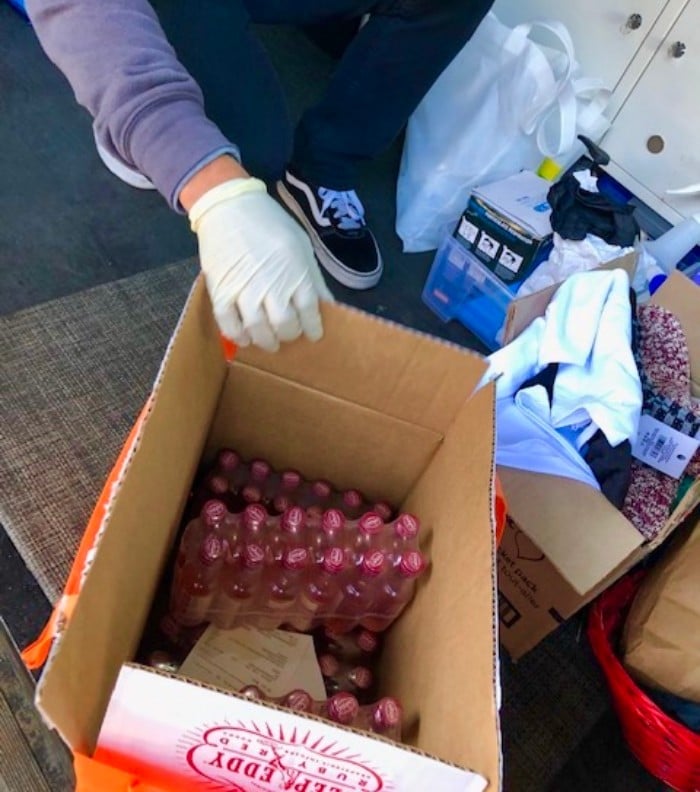As harm reductionists, we always have on our minds the health and well-being of people who use drugs. Too often, however, we forget that alcohol is a drug too, and that drinkers sometimes also could use our help.
When the COVID-19 pandemic started to hit home along with shelter-in-place rules, the sales of alcohol skyrocketed! Many of us with credit cards, cars and addresses for delivery stocked up. Some of us may be drinking a little more than we would wish during lockdown.
But what about the folks living on the streets, or in marginal settings?
In late March, I started to worry as vulnerable heavy drinkers, whom my colleagues and I encountered through our work in San Francisco, talked about trying to get alcohol. At the end of the month, amid heightened economic pressures, many people were low on money or out of it. Without sidewalk traffic, there was no opportunity to panhandle to get some change.
What would happen to those who were heavy drinkers and/or dependent on alcohol if they ran out?
I knew what would happen: Withdrawal from alcohol is often life-threatening. I know that the mortality rate from untreated delirium tremens (the “DTs”) is very high. And I knew that no one was addressing this silent need.
So I bought alcohol. Cases of mini bottles of vodka from BevMo! (who declined, by the way, to offer either a donation or a discount for our non-profit). I paid for it myself, then looked at the cases in my hallway for quite a while, not knowing how to proceed.
What would the licensing board do if it learned that we were dispensing alcohol? Take away our licenses, probably.
My staff at the Center for Harm Reduction Therapy were doing outreach every day in poverty-stricken neighborhoods, delivering hot food, bottled water and counseling, sometimes tents. Surely, I figured, we could just assess people for alcohol withdrawal, and hand out mini bottles to whoever needed them?
Then the questions started nagging me. We are licensed mental health providers. What would the licensing board do if it learned that we were dispensing alcohol? Take away our licenses, probably.
And I am responsible for the welfare of my staff first, just as the clients are their first priority. I didn’t want to put our staff in a compromising position, even if we all felt morally and ethically clear about this intervention.
In addition, the increasing desperation on the streets leaves people wanting everything, anything, that is offered. We went through much more Narcan than usual in one week, for example. People just want something to feel taken care of.
I imagined that the word would spread quickly if it became known that we were handing out alcohol, even if our intention was to help people stay alive. Lots of people would simply want a drink (just like those of us who are housed!). If we gave alcohol to someone who wanted it, but who didn’t need it in a medical sense, would that be a problem or not?
When I finally brought up this proposal to our staff, they were enthusiastic: What a great harm reduction intervention! What a needed service! And then the same questions that I had struggled with started. But still…
Maybe we could just have it around, and some of our outreach partners who are not mental health professionals could hand it out? Maybe we could do an assessment and just leave some in the bushes?
All the ideas that came out of our discussion presented significant risk. It was right that we should be considering potential alcohol harm reduction interventions for the people we serve. But how can it be right, with people in crisis amid a pandemic that has thrown all services into chaos planning, that we were having to discuss the potential harms or risks to our licensure?
It’s not right, but it’s real.
Photograph courtesy of Patt Denning.





Show Comments